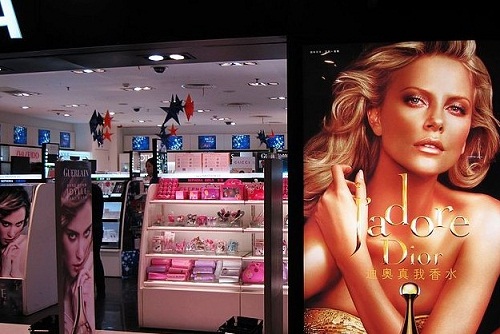During the past few years, value sales for beauty and personal care products has risen in the Chinese market. The main driving force was the vigorous development of the Chinese economy as a whole. With more disposable income, consumers can buy more products that they need. An important fact about consumers in South China is that, they have been developing brand awareness and their demand for more sophisticated and brand-name items is on the rise. Market players in this industry responded to this trend by subdividing their products to satisfy the need of different consumer groups.
Despite the fact that skin care is a fairly mature product category, it still saw big development in South China in 2011. Anti-aging products in particular saw a significant rise in demand. Although the primary consumers for these products are females over 30, younger females are increasingly becoming concerned about their beauty and begining to use anti-aging products early. Another trend in the Chinese personal care industry is the appearance of sets. During holidays, some famous brands like Estée Lauder, Clinique and Dior launch special sales where products are sold in sets. In addition, male consumers are beginning to go beyond just their basic needs such as shaving, bathing and shower products. They are buying oil control products and deodorants and are becoming increasing brand sensitive.
Also, consumers are becoming more conscious about germs. Liquid soaps have had a huge increase in sales volume in recent years, with brands like Blue Moon, Kaimi, Walch and Dettol having greatly increased their sales in South China in 2011.
Prospects (marketing research in China)
Consumer need in South China has been becoming more and more sophisticated as consumers are looking more towards recognizable brands. Thus, market players are trying to divide the market at large and have been developing new multi-functional products to cater to people’s needs. Consumers’ concerns for product safety has been a driving force for producers to use more organic or ‘green’ ingredients instead of chemical ingredients. Brands such as Shanghai Jahwa United’s Herborist skin care that have already used some organic materials have benefited a lot from these changing consumer tastes.
Large department stores, supermarkets and hypermarkets have remained the major retailing channels for years, and market researchers believe that this trend will continue for the following few years. Since South China is a relatively more developed region than inland China, internet retailing has a lot of market potential. Many key players, having realized the importance of this channel, have established their online shops using B2C websites such as Tmall and 360buy, or their own official websites.
Daxue Consultant China
Sources:
Credit Photo: Top086





